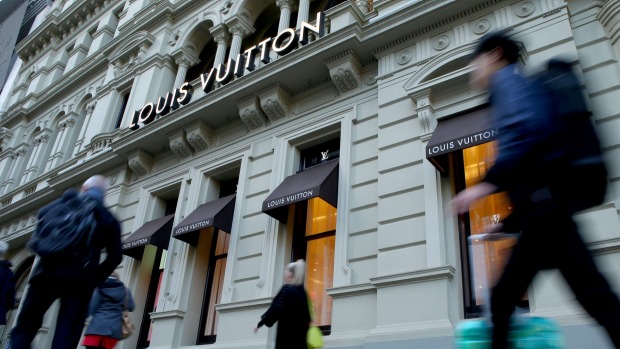Franchising, retail, business

01/09/2016
The next time you buy a $2000 Burberry trench coat, your shopping experience is more likely to be in cyberspace than from a bricks and mortar boutique. Indeed, the days of the upmarket high-street shop may be numbered following a major slump in sales across the major brands.
Those in the industry have attributed this slump to fashion retailers relying too much on the label-obsessed Chinese middle class. Just two years ago a massive 30 per cent of luxury brand sales came from China.
Burberry particularly were in demand with China accounting for a staggering quarter of sales. To lure the newly affluent Chinese, brands such as Gucci and Louis Vuitton built a huge number of expensive temples of fashion, leaving themselves frighteningly over-exposed.
But as with everything in business, what goes up, must come down. The Chinese market crash has had a profound effect on luxury brands, with many struggling to stay afloat.
Over-extended network
"Over-extending the retailer network is indeed a problem," says Luca Solca, managing director, luxury goods at Exane BNP Paribas in Switzerland. "And I don't think this is just a cyclical issue, but rather a structural issue. The fact is, middle class consumers only have so much to spend on luxury goods and their wardrobes are full. The Chinese are still driving growth, but they are driving it as a far more moderate pace."
Solca, voted the world's number one luxury goods analyst, was in Australia this week speaking at Sydney's deLux16 conference, a symposium of influencers.
He believes that unless you are a new brand with a very compelling proposition, opening a new store in this financial environment is a 'self-defeating endeavour'.
Soft and hard luxury
"The companies that have increased their retail network the most, namely Prada and the Swatch Group (Omega, Harry Winston, Breguet, Balmain, etc) in soft luxury and in hard luxury respectively, are the ones that have suffered the most, especially when it comes to share price performance."
And because there is no new consumer frontier of the same magnitude as China on the horizon, Solca believes luxury brands will need to rely more and more on online sales to survive and grow. "Online sales are a way to increase frequency of purchases," he says. "There are lower operating costs involved because you don't have property rental, or commissions to pay to sales staff. Therefore, the return investor capital equation looks good."
Digital also enables luxury goods companies to know virtually all of their customers by name and to tailor their communication to them and their desires.
Intelligent shopping
Aussie startups such as Proxima will have a role to play in the upmarket online retail environment of the future. Proxima uses AI (Artificial Intelligence) to allow brands to communicate with their customers and make them feel a part of the brand.
Aside from the revolution in selling luxury brands online, Solca says luxury goods companies are going to have to start culling their underperformers. "This is probably a good time to reassess their 'dark brands'; I believe this is why LVMH divested themselves of DKNY, a brand that had lost money for the best part of a decade.
"Consumers in the current environment are spoiled for choice. They are becoming very choosy, they are becoming more experienced, and they are not going to tolerate imperfect or disappointing products or services. Luxury goods companies need to get buttoned up and work on product innovation, work on brand availability, and of course also work on service provision."
Fonte:http://www.executivestyle.com.au/luxury-brand-guru-luca-solca-predicts-the-end-of-high-street-shopping-gr66ju